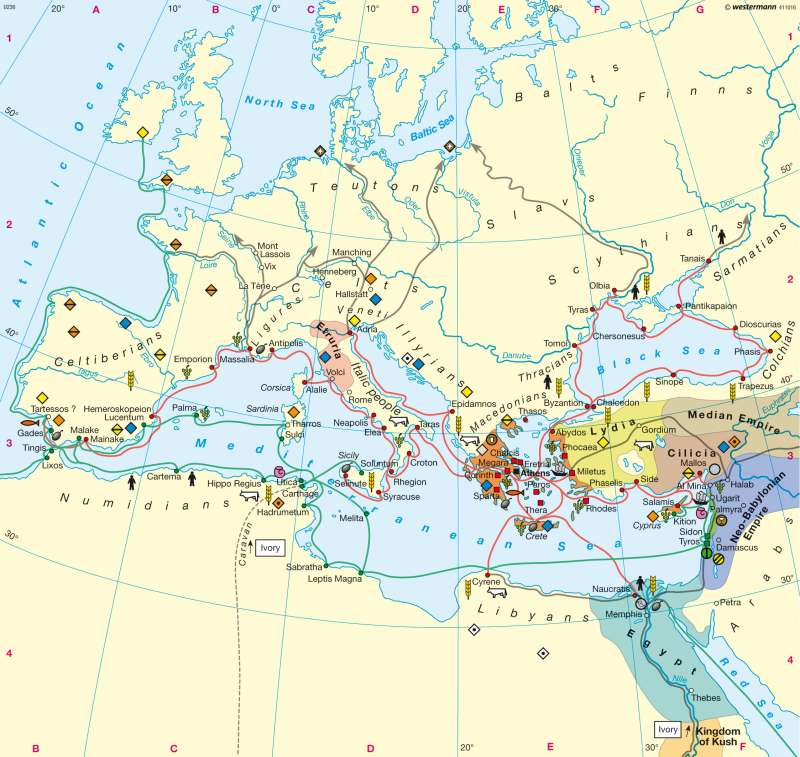Phoenician and Greek colonization
Europe - Classical Antiquity
978-3-14-100790-9 | Page 28 | Ill. 1

Information
The Phoenicians were the dominant cultural and economic power in nearly the entire Mediterranean region from 1100 to 800 BC. Their dominance came to an end circa 800 BC as the era of Greek colonization began. Whereas the Phoenicians were interested primarily in establishing trading centres and developing new markets, Greek colonies were formed above all in response to the constantly increasing population density that threatened to overtax the capacities of cities in the motherland.The Phoenicians
The Phoenicians began establishing significant colonies and trading hubs throughout the Mediterranean region around 1100 BC. The earliest colonies were founded in such cities as Tyros, Sidon and Berytos (today's Beirut) to the north. The region under Phoenician hegemony soon extended to Cyprus, Malta, Sardinia, the Balearic Islands, southern Spain and large parts of North Africa.
One of the most important Phoenician colonies was Carthage, situated north-east of Tunis, which was evidently founded from Sidon shortly after 1200 BC but did not achieve its extraordinary significance until the new city was established from Tyros in 1814. Carthage became the greatest sea power and the most important trading centre of the ancient world. The Phoenicians are known to have crossed the Straits of Gibraltar and founded the port city of Gades (today's Cadiz) on the Spanish Atlantic coast as early as 1100 BC. Other trading settlements followed on coasts of Portugal and West Africa. A number of different finds suggest the probability that they advanced nort




